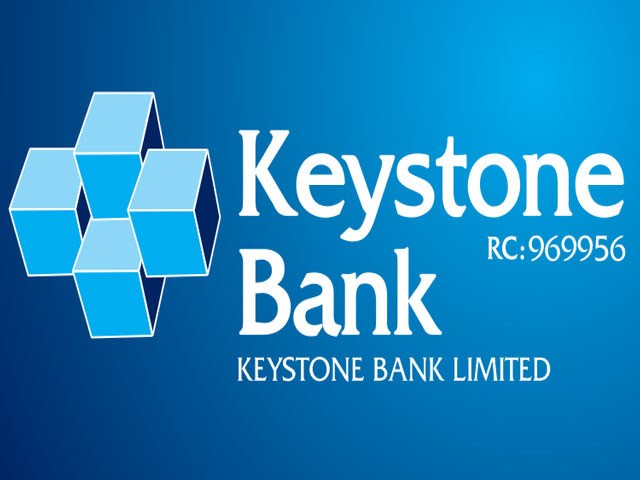- New Investors Take Over Keystone Bank
New investors on Friday took control of Keystone Bank Limited and announced plans to reposition the lender on the path of growth with immediate effect.
This follows the announcement by the Asset Management Corporation of Nigeria on Tuesday that the Sigma Golf-Riverbank Consortium had acquired Keystone Bank.
Sigma Golf-Riverbank Consortium comprises Sigma Golf Nigeria Limited and Riverbank Investment Resources, both of which are entities set up by local investors.
One of the financiers of the consortium is said to be the former Managing Director/Chief Executive Officer of Sigma Pensions Limited, Mr. Umar Modibbo.
Modibbo and his brother, Adamu, a former governorship aspirant in Adamawa State, were the founders of Sigma Pensions, a Pension Fund Administrator, until its sale in November 2015to Actis LLP, a private equity investor in emerging markets.
The Board of Directors of Sigma Pensions, according to the firm’s website, is comprised of highly accomplished and well respected professionals and administrators, chaired by Alhaji Rasaki Oladejo, a former Deputy Director-General of the Nigerian Stock Exchange. Other members are Natalie Kolbe, Tony Abakisi, Emenike Uduanu (managing director/chief executive officer) and Ibrahim Balarabe.
However, information regarding those behind Riverbank Investment Resources are scanty.
The completion meeting, according to a statement by the lender, was held on Thursday with representatives of the Sigma Golf-Riverbank Consortium, AMCON, Board and management of Keystone Bank, as well as the advisers to the buyer made up of KPMG Professional Services, Boston Advisory Services, Giwa Osagie & Co., and Pan-African Capital Limited; and the seller, comprising FBN Capital Limited, Citibank Nigeria Limited, Banwo & Ighodalo and Crosswrock Law.
The completion meeting, according to the statement, signifies the effective handover of the bank to the buyer and the commencement of a transition process that will culminate in the reconstitution of the Board and management of the lender to reflect the new ownership.
Keystone Bank was taken over by AMCON in 2011 and has been managed by the corporation’s appointed Board and management that stabilised it over the years to make it attractive as a target for eventual acquisition by the new investors, who emerged as preferred bidders after a very transparent and competitive bidding process, the statement noted.

 Forex3 weeks ago
Forex3 weeks ago
 Naira2 weeks ago
Naira2 weeks ago
 Billionaire Watch2 weeks ago
Billionaire Watch2 weeks ago



 Naira3 weeks ago
Naira3 weeks ago






 Naira2 weeks ago
Naira2 weeks ago




 Naira1 week ago
Naira1 week ago




 Naira4 weeks ago
Naira4 weeks ago






 Naira1 week ago
Naira1 week ago
























